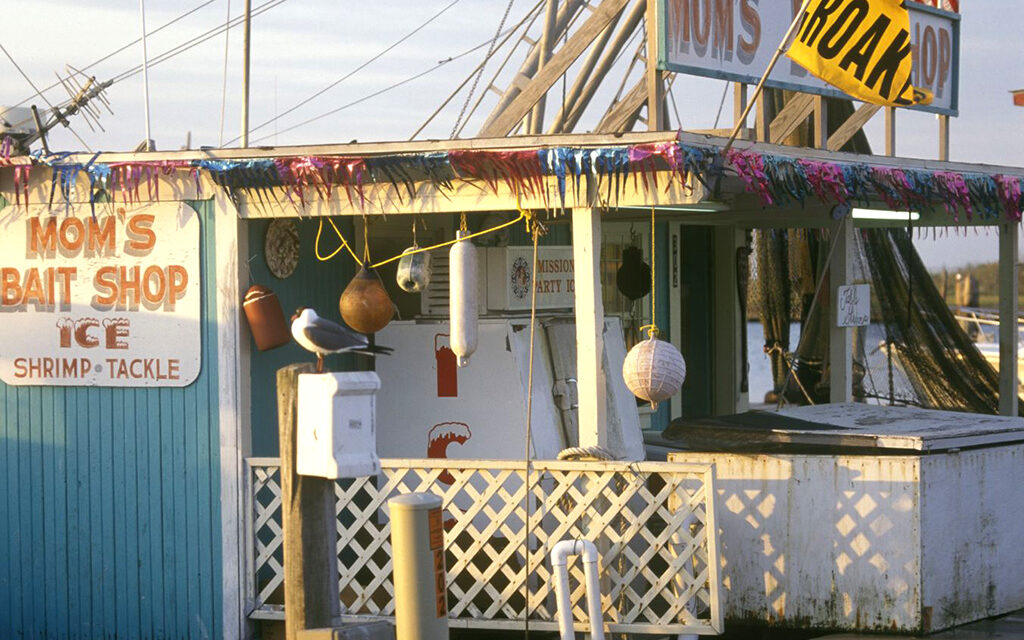by John Jefferson
Ah, Spring. The time of the year when it’s said that a man’s fancy turns to romance — and another says it turns to baseball. I’ve been through both those wars and survived being knocked unconscious by a baseball and hit harder during the other occurrence. And the only useful thing I learned from springtime experiences is that the wind blows hard and often in the spring and really messes up my fishing.
Some sage once said you can’t change the weather; you just have to live with it.
That’s a bother if you’re only fishing in freshwater close to home. But it’s a downright frustrating aggravation when you’ve driven four hours to Rockport the evening before. Then, only to see a wind-driven wave splash over your fender the following morning as you drove from Redfish Lodge to meet your guide! And have your hat blow off as you arrived to meet him!
We’re told March can come in like a lamb and leave like a lion. But some years, April does it, too. Often, they both act rambunctiously throughout both months.
But it usually gets better when spring is over. Most old salts agree that fishing the bays and the Gulf improves during the summer – at least until the hurricanes arrive.
And why is that?
There are several reasons. It all boils down to water temperature – pun intended.
I first heard of spotted sea trout being affected by cold weather when an unusual freeze reached as far south as Galveston. My aunt lived on Offats Bayou and told of seeing men walking up from the water with FROZEN trout caried over their shoulder like a rifle!
A former TPWD Coastal Fisheries employee told me saltwater fish prefer warm water and seek deep holes in the bays to escape cold weather.
Their bodies adapt to the water temperature and cooling water slows their metabolism. Too much exposure to freezing temperatures can be fatal. That’s why TPWD declares emergency closing of fishing in certain areas in the bays when freezes occur. The fish are concentrated and become easy pickens.
Their appetites are also affected, leading to limited feeding.
Then, when the cold snaps are over and warmer sea waters return, fish start feeding normally again. Fish regain their appetites and energy in warmer summer waters.
Another angler told me the abundance of baitfish adds to the frenzy. Some of the coastal guides refer to that period as “Croaker Madness” when the year’s hatch of croakers populates the bays, stimulating feeding. Guides line up before three a.m. at bait shops to make sure they get a day’s supply of bait.
Birds like croakers, too. I’ll never forget removing a fishhook from a seagull’s mouth that had snitched my bait on the fly as I cast!
Fishing an incoming tide works best. The influx of new water invigorates bait fish activity, leading to increased movement and catches.
Guides are available in every coastal town.
And the fish will soon be biting every day!
JJ






